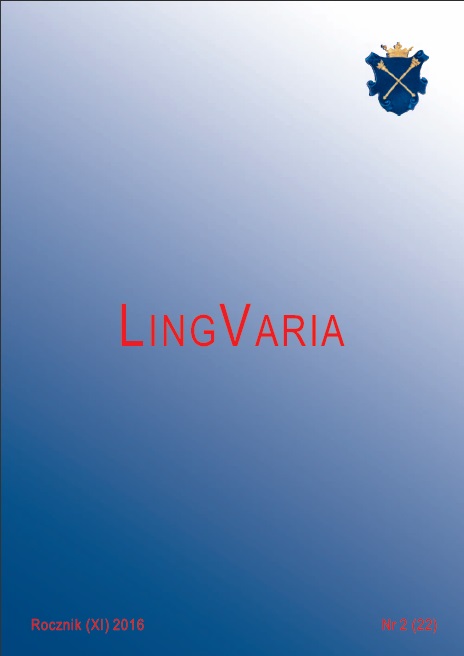W sprawie najdawniejszych zapożyczeń wschodniosłowiańskich w języku polskim
Regarding the earliest East Slavic borrowings in Polish
Author(s): Adam FałowskiSubject(s): Language studies, Language and Literature Studies, Theoretical Linguistics
Published by: KSIĘGARNIA AKADEMICKA Sp. z o.o.
Keywords: Polish-Eastern Slavic linguistic contacts; Old Polish; loanwords; Oriental vocabulary
Summary/Abstract: In 1963, Stanisław Urbańczyk attempted to investigate the problem of the earliest East Slavic borrowings in Polish. He presented a list of Old Polish imports from the East Slavic languages comprising 150 lexical units. Fifty years later, Wiesław Witkowski, another Slavicist from Cracow, extended the list of East Slavic borrowings included in Słownik Staropolski (‘Old Polish Dictionary’) to 199 units. The goal of the present paper is to partially verify the standpoints of the two researchers. Perforce, it is limited to those words which arrived in the East Slavic territory from the broadly understood East, i.e. from the Turkic, Mongolic, and Finno-Ugric languages. The results of this verification are as follows. Out of 32 analysed lexical units (not including the word denka), 22 can probably be considered East Slavic borrowings in Old Polish: ataman, bachmat, bezmian, bisior, bojar, bojarzyn, bołki, bułatowy, czobot, czobotnik, derka, kalannik || kalennik, kalanny || kalenny, kalaństwo, kaleta || kaletka, kitajka, kitajczany, kiwior, korczak || korczag, korczakowy, mohorycz, mohorycznik, opończa, roztruchan, sorok, telega, teleżny, tołmacz, torłop, tybinki || ciebienki. The same is not true for the following words: hazuka || azuka, jarmułka || jermułka, karbus, orkisz, serpanek || serpanka, tarchun || torchun. In four cases (the words badawia, basałyk, kolimaga, orda, ordyniec || hordyniec) a definite acceptance of East Slavic mediation appears to be impossible at the current stage of research.
Journal: LingVaria
- Issue Year: 2016
- Issue No: 22
- Page Range: 137-156
- Page Count: 20
- Language: Polish

